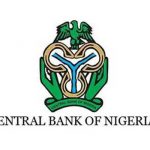This according to a herd of investment bankers and researchers at Afrinvest West Africa Limited culminated in a rebound in Nigeria’s capital inflows in the period to a level last seen in Quarter three (Q3):2016 when the Central Bank of Nigeria (CBN) first announced a move to a flexible FX market structure.
In Q2:2017, total capital inflows surged 97.3per cent Q-o-Q to $1.8 billion from $0.9 billion in the prior quarter and improved 72.0 per cent year on year (Y-o-Y) from $1 billion in Q2:2016. Foreign Portfolio Investment (FPI) accounted for the largest proportion (43 per cent, $0.8 billion) in Q2:2017, followed by Other Investments (41.7per cent, US$0.7 billion) and Foreign Direct Investment (15.3per cent, US$0.3billion).
The key attraction of the segment according to stakeholders remains the fact that rates are market determined. Hence, any moves to distort the current operations of the window could lead to a repatriation of funds. In addition, the investment bankers believe the improved FX liquidity in the economy is broadly driven by spate of FX intervention by the CBN – which has been bolstered by relatively stable oil prices and improved production volumes. Thus, there are expectations that investors to continue to watch the two variables in taking investment decisions.
“In our view, the jump in foreign inflows is unsurprising given the recent development in the FX market, particularly the launch of the Investors’ & Exporters’ (I &E) FX window in April. The largest volume of foreign inflows was recorded in May, underlining the positive impact of FX market transparency and flexibility on investor confidence.
“The knock-on effects of strong portfolio flows is already evident in performance of the domestic Equities market which have historically been driven by FPIs – as investors took advantage of the erstwhile attractive valuation of the market, thereby driving the benchmark index YTD return to 36.4per cent (25/08/2017) from a negative position of -6.2 per cent in the first week of April,” the bankers stated in a note to investors over the weekend.
During the week, the National Bureau of Statistics (NBS) published its quarterly capital importation report for Q2:2017. Expectedly, the data published reflected improved investor confidence in the Nigerian economy since the turn of the second quarter against the backdrop of improving macroeconomic conditions and FX policy reforms implemented by the CBN in April 2017.






